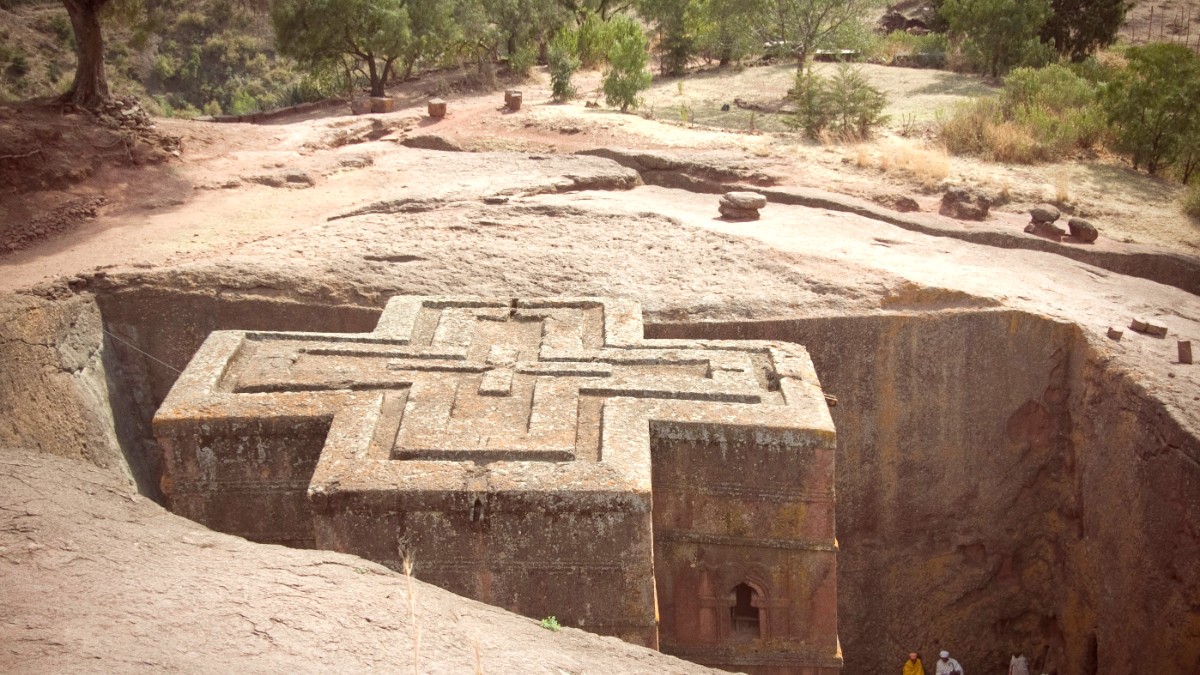
Northern Ethiopia, Ethiopia
Ethio Telecom is the sole mobile network provider in Ethiopia. SIM cards are available at Addis Ababa Bole International Airport (ADD) upon arrival or at official Ethio Telecom shops in major towns, Lalibela included.
Wi-Fi exists in most mid-range to luxury hotels and some guesthouses in Lalibela. Connection speeds can be slow and unreliable. Power outages, somewhat frequent, influence Wi-Fi availability.
Amharic serves as the official national language of Ethiopia. English is spoken by tour guides, hotel staff, and some merchants in tourist areas. Outside these circles, English proficiency is often limited.
Learning a few basic phrases goes far in showing respect and fostering positive interactions.
Download an offline Amharic dictionary or translation app to your phone before you travel. This utility is valuable when internet access is absent.
Information about typical operating hours, holidays, and airport services.
Generally Monday to Friday, 8:30 AM to 4:30 PM. Some may open on Saturday mornings.
Typically open daily, from around 9:00 AM to 6:00 PM. Smaller, local shops display more flexible or extended hours.
Vary, but typically open from morning (for breakfast) until late evening (around 9:00 PM or 10:00 PM).
Ethiopia uses its own unique calendar (the Ethiopian calendar, about 7-8 years behind the Gregorian calendar). Many public holidays link to religious festivals.
During the heavy rainy season (July-August), some tour operators or remote attractions might have limited accessibility or reduced services due to challenging road conditions.
Verify business hours locally, especially during religious festivals, as schedules may vary.
Ethiopia represents a conservative society with deep-rooted traditions.
A handshake serves as the common greeting, specifically between men. Women may offer a handshake to other women or a male foreigner. A slight bow is appropriate when greeting elders or respected persons.
Modesty shapes a significant aspect of dress. Shoulders and knees must remain covered, especially when visiting churches and religious sites.
Eat with your right hand only. Use injera to scoop up food. When eating from a shared platter, only reach for the food directly in front of you. Accept a "gursha" (being fed a mouthful by your host) as a gesture of friendship.
Always seek permission before photographing individuals, notably children. Some people may decline. Remain discreet and respectful in religious sites. Avoid flash during ceremonies. Some sites may charge a small fee for photography or have restrictions during services; your guide can advise.
When visiting churches, observe how locals interact and follow their lead. This displays respect and helps avoid unintended cultural missteps.
Lalibela's terrain and the design of its main attractions present noteworthy challenges for travelers with mobility impairments.
Lalibela is built on hilly, uneven terrain. Many roads and paths stay unpaved, rocky, and feature numerous steps. The rock-hewn churches themselves present considerable accessibility challenges.
No formal services (e.g., sign language interpreters, Braille guides) exist widely for specific visual or hearing needs. Accessible attractions are very limited.
Local transport, mainly bajaj, is not adapted for wheelchair users. Some parts of the church complex have protective shelters with ramps, but these do not cover the entire site or all churches.
Travelers with mobility challenges find it important to contact specialized tour operators or disability travel organizations prior to their Lalibela trip. They can evaluate feasibility and offer realistic expectations.
If you have mobility concerns, thoroughly research the physical demands of visiting the churches. Consider a virtual tour or consulting travel experts specializing in accessible travel to determine if Lalibela fits your needs.